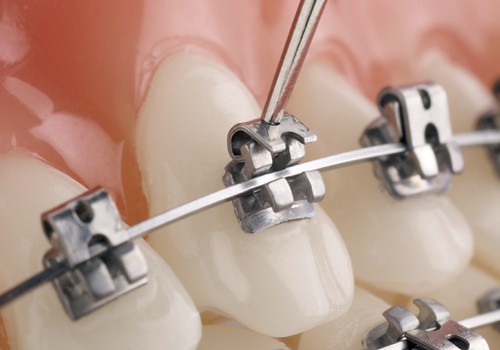Despite the fact that many young Muscovites are fluent in English, the older generation (they are often the parents of my patients) are still more comfortable reading in Russian. Therefore, about a month ago, I launched a channel on Telegram with a goal to deliver useful orthodontic information to the locals. Following an old habit, I still write my texts in English and then translate them into Russian. As a result, I have already accumulated about a dozen short texts in English which aren’t published anywhere.
Here is one of them. Since it was written primary for the patients, it might be a rather boring read for a fellow orthodontist. I am sorry for that!

Self-ligating brackets: what do studies tell us?
Over the past three decades since the appearance of self-ligating brackets on the orthodontic market many strong claims have been used by the advertisers. It was said that self-ligating brackets work faster, cause less discomfort, can grow bone, and in a some mysterious way result in less plaque accumulation on the teeth.
Let’s look at these claims from the scientific stand point.
Do self-ligating brackets work faster?
No. They don’t. In 2016, a huge study from England that included 138 patients showed that there are no significant differences in the overall treatment duration between traditional and self-ligating brackets. [1]
In 2014, another piece of research from England that studied 110 patients even showed that traditional brackets work faster than self-ligating ones in the initial stages of the treatment. [2]
Do self-ligating brackets cause less discomfort?
No. They don’t. A study by British researchers published in 2008 showed no differences in perceived discomfort levels between self-ligating and traditional brackets during the initial stages of treatment. 62 patients were studied. [3]
A later study of 66 patients, also from England, showed in 2009 that although no differences in discomfort levels between two groups were present, the patients with self-ligating brackets experienced greater discomfort during archwire insertion and removal. [4]
Do self-ligating brackets grow bone?
No. They don’t. A study from Brazil and Denmark published in 2018 debunked a statement that self-ligating brackets can expand dental arches by growing bone around the roots of the teeth. The authors studied 22 patients. They concluded that the expansion was gained by the teeth “moving through the bone” and at the end of treatment the teeth did not “remain centred in the bone”. In other words, the treatment resulted in bone loss and unstable position of the teeth. [5]
Do self-ligating brackets result in less plaque accumulation?
No. They don’t. A study of 32 patients done in Greece and published in 2010 showed no association between bracket type and bacterial load on the teeth. [6]
Do self-ligating brackets cost more?
Most of them do (there are a few exceptions though). As a result, some orthodontists charge more for the treatment with self-ligating brackets.
What do I think?
I think that any brackets can move teeth. Just as the design of chess pieces is not important in chess, the design of brackets is not really important in orthodontic treatment. What is really important, both in chess and orthodontics, is knowledge and experience.
When I see a patient with self-ligating brackets on the teeth I suspect that the treating orthodontist is a beginner clinician who is not familiar with the scientific literature. Such patients also usually have mistakes in their treatment plan, bracket positioning, and on top of that are told a lot of unscientific information about their treatment… These are just my personal observations. Perhaps it has to do with a very aggressive marketing of self-ligating brackets and a total absence of good orthodontic postgraduate programs in Russia. After all, brackets are just little metal pieces to deliver forces to the teeth…

Hello doctor Alex, i am an Ortho resident from a post soviet country which also has the exact same problems you articulate so well in your articles.. how would you recommend me or my colleagues to go about addressing the total absence of good orthodontic postgraduate programs in Romania? what would you read/do etc?
Thank you and
best regards Sam
(I tried emailing you but maybe my emails ended up in the spam )
LikeLike